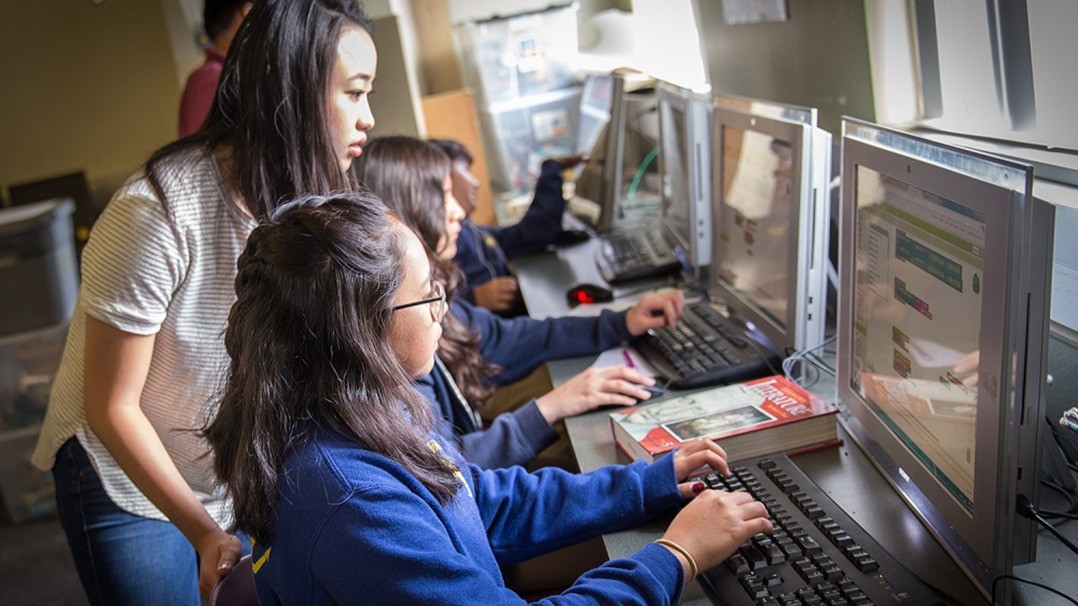High school students show awareness of AI-based plagiarism issues, but harbor misconceptions about manipulating AI-generated content that educators need to address.
Objective: This work-in-progress study aimed to understand high school students' perspectives on AI-based plagiarism, addressing a gap in research that has primarily focused on higher education settings rather than K-12 education.
Methods: The researchers conducted a questionnaire survey adapted from an existing instrument designed to measure student awareness of conventional plagiarism. The survey presented nine scenarios related to AI use in academic work, requiring students to assess whether each scenario was academically acceptable for individual assessments. The survey was distributed to 122 high school students who participated in a seminar in April 2024, with 99 students (81% response rate) completing the anonymous and voluntary questionnaire. Responses were analyzed based on the proportion of expected responses for each scenario.
Key Findings:
- Most high school students demonstrated awareness of AI-based plagiarism scenarios, with a relatively low proportion of "do not know" responses across most questions.
- 52% of students correctly identified that subscribing to AI to write and submit solutions as one's own work was unacceptable.
- 64% of students recognized that incorporating work from AI without acknowledgment was unacceptable.
- Significant misconceptions were identified regarding three key scenarios:
- 57% incorrectly believed copying and disguising AI-generated solutions was acceptable
- 51% incorrectly believed copying an early draft of AI-generated solutions and developing it further was acceptable
- Only 29% correctly identified that asking AI to fix troublesome solutions was unacceptable
- Students were most uncertain about discussing solutions with AI while working (30 uncertain responses), asking AI to fix problems (24 responses), adding features inspired by AI (24 responses), and incorporating work from AI without acknowledgment (21 responses).
- Students generally understood acceptable AI collaboration practices, such as asking AI for general approach advice (84% correct), discussing solutions with AI (49% correct), seeking advice to fix troublesome solutions (77% correct), and adding AI-inspired features (71% correct).
Implications: The findings suggest that policies for AI-based plagiarism can be largely derived from existing conventional plagiarism policies, as student awareness levels are comparable and misconceptions are similar. Educational institutions should address specific misconceptions, particularly around disguising AI-generated content, expanding AI-generated drafts, and having AI fix problematic solutions. Instructors need to explicitly communicate expectations regarding AI use at the beginning of courses, especially for scenarios where students showed uncertainty. This study provides valuable insights for K-12 educators developing academic integrity policies in the AI era.
Limitations: The authors acknowledge at least two limitations of this work-in-progress study. First, while the analysis was acceptable, it could be more comprehensive through additional statistical analyses and a larger sample size. Second, the survey was limited to high school students from a particular city in a developing country, potentially limiting the generalizability of findings to students from other geographical and educational backgrounds.
Future Directions: The researchers propose several directions for future work:
- Investigating the reasons behind student misconceptions about AI-based plagiarism through focus group discussions or one-on-one interviews
- Conducting the study with more students from diverse backgrounds to strengthen the findings
- Comparing student perspectives with teacher perspectives on AI-based plagiarism
- Developing specific policies or general recommendations for maintaining K-12 academic integrity in the era of AI
Title and Authors: "Work in Progress: High School Student Perspective on AI-based Plagiarism" by Oscar Karnalim, Robby Yussac Tallar, Pin Panji Yapinus, Markus Tanubrata, and Hendry Wong from Maranatha Christian University, Indonesia.
Published On: 2025
Published By: IEEE Engineering Education World Conference (EDUNINE)
